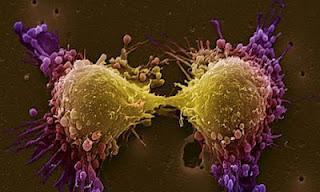Cancer can be one of the most challenging diseases for both patients and their families. While a diagnosis of cancer can be a life-changing event for many people, there are steps that patients can take to improve their lifestyle and chance of recovery.
Cancer is the uncontrolled replication of cells inside the human body. Cell replication inside the body is controlled by several different factors: chemical signals, genetic information, and physical proximity are all involved in the replication process. Replication errors can lead to the uncontrolled growth of cells inside the body. While the immune system is usually able to eliminate cells growing outside the body's control, some types of cancer can't be controlled by the immune system. This will result in the spread of a malignant cancer inside the body.
 All types of cancer, whether it is pancreatic cancer, breast cancer, or mesothelioma causes cancer patients to pay greater attention to their overall health. Exercise can be very beneficial for many cancer patients. While many types of cancers may have minimal symptoms at first, the symptoms of chemotherapy can be challenging for some people. Chemotherapy uses radiation, specialized medication, and other techniques to eliminate rapidly growing cells inside the human body. While chemotherapy can be very effective at eliminating cancerous cells, it can also cause problems in other types of human cells that grow at a rapid rate. Chemotherapy has been known to cause hair loss, apathy, depression, systemic pain, and weight loss.
All types of cancer, whether it is pancreatic cancer, breast cancer, or mesothelioma causes cancer patients to pay greater attention to their overall health. Exercise can be very beneficial for many cancer patients. While many types of cancers may have minimal symptoms at first, the symptoms of chemotherapy can be challenging for some people. Chemotherapy uses radiation, specialized medication, and other techniques to eliminate rapidly growing cells inside the human body. While chemotherapy can be very effective at eliminating cancerous cells, it can also cause problems in other types of human cells that grow at a rapid rate. Chemotherapy has been known to cause hair loss, apathy, depression, systemic pain, and weight loss.During exercise, the body releases a combination of endorphins and neurotransmitters. These chemicals help the body deal with high levels of physiological stress during strenuous exertion. Endorphins act as natural painkillers inside the body, whiles neurotransmitters like serotonin and dopamine can help improve mood, energy, and drive.
Exercise has also been shown to boost the appetite. Since chemotherapy can caused reduced appetite and weight loss, it's important to maintain a high calorie diet during any type of treatment plan. A great way to boost one's appetite is with cardiovascular exercise.
It's important to find a form of exercise that puts minimal stress on the body during treatment. Swimming, walking, cycling, and yoga can be a great way to exercise. Avoid exercises that involve a high impact on the joints -- this includes exercise like running, jumping jacks, weight lifting, basketball, football, and other high-impact sports.
Try to include forms of exercise that allow one to be outside. Nature can create a great backdrop during a recovery program. It's also important to maintain a healthy diet during any treatment and recovery program.

Liz Davies is a recent college graduate and aspiring writer especially interested in health and wellness. She wants to make a difference in people’s lives because she sees how cancer has devastated so many people in this world. Liz also likes running, playing lacrosse, reading and playing with her dog, April.
www.ultramarathonrunning.com.au

